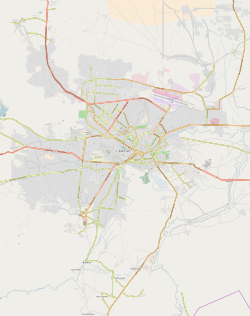| July 2016 Kabul bombing | |
|---|---|
| Part of the War in Afghanistan (2001–2021) | |
 A few hours before the bombing | |
 | |
| Location | 34°32′N69°10′E / 34.533°N 69.167°E Dehmazang Square, Kabul, Afghanistan |
| Date | 23 July 2016 c. 14:30 AFT [1] (UTC+04:30) |
| Target | Shia Muslims |
Attack type | Suicide bombing [2] |
| Deaths | 97+ [2] [3] [4] |
| Injured | 260 [5] |
| Perpetrators | |
| Motive | Anti-Shi'ism |
| Part of a series on the |
| Hazaras |
|---|
| |
| |
On 23 July 2016, a twin bombing [6] occurred in the vicinity of Deh Mazang square in Kabul, capital of Afghanistan, when Enlightenment Movement protesters, mostly from the Hazara ethnic group, were marching against a decision to bypass their region in the development of the TUTAP mega power project. [3] [7] At least 97 people were killed and 260 injured. [2] [3] [4] The terrorist group Islamic State claimed responsibility; however, the same group later on refused it. Some Hazara protestors allege that Afghan president Ashraf Ghani was behind the attack. They believe that Ashraf Ghani government was abetting the terrorists who were responsible for the attack. They also allege that the government officials were preventing the wounded from being shifted to the hospital. [8] [9]
Contents
- Background
- Bombings
- Reactions
- Supranational bodies
- Countries
- Domestic
- Aftermath
- United Nations special report on the attack
- See also
- References
The attack was the deadliest in Kabul since 2001 but was surpassed by a truck bombing in May 2017. [10] Afghan President Ashraf Ghani, in a live television address, declared the following day (24 July) a day of national mourning and promised action against the culprits. [1] [3] In tribute to the victims, Ghani renamed the Dehmazang Square, where the attack took place, to Enlightenment Martyrs' Square. [11]